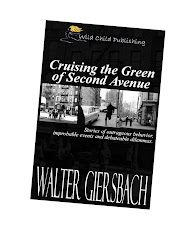Grandma Fisk, lecturer and cartoonist.
My family treated our ancestors the way you’d set extra places at table. Mom and grandma passed along centuries-old advice and anecdotes like they were something seen on the Six O’clock News. (“Yes,” one would exclaim, “William set a trap to catch the thief stealing his firewood. He told the children he’d drilled the wood and put gunpowder inside. Of course, children can’t keep a secret….” Or, “The worst thing Great-Great Grandpa Pierce’s second wife would say is, ‘Well, I pity him.’”)
Ancestors hovered
in our house like so many ghosts on vacation.
Because my family were New England hoarders I’ve had a lot of their trunks
to unpack, boxes to sort and albums to review.
It’s not unusual now to straighten up a room and stop to examine Great
Grandpa Ballou’s letters from his Civil War regiment, read postcards from
Grandma Fisk postmarked from towns across America where she lectured, or trip
over the candlesticks Great-Great-Grandpa Pierce played with as a kid in 1816.
My limited religious ruminations stop at the thought that
we’re immortal until our last acquaintance passes on. Given this dollar-store theology, I opt for
saying you’re “alive” until you’re no longer remembered by anyone. Let me suggest the Internet is a gateway to
immortality.
Grandma Fisk, for example, lectured on the Chautauqua
Circuit before talking movies came along, traveling the country as “America’s
Foremost Cartoonist.” By Googling her
name, I discovered the University of Iowa had a digital collection of
Chautauqua information. I called the librarian
there, who exclaimed, “We have the programs and schedules, but we had no idea of
the actual content of their talks!” I was happy to donate her papers, photos,
notes and stories, which are now online.
I like to think she’s been given a longer lease on life as students use
her materials to research women’s liberation.
A
poignant search for unfading, eternal life compels me to store school photos, snapshots
and Daguerreotypes. Those “Kodak
moments” are a way to store time in an album.
The Internet now gives them greater immortality.
We
can waltz through a live-for-the-moment future till the devil demands his
due. Then, the materials from the past
become precious commodities. That’s good
news. Our images and words can be archived,
repeated and shared. Their spirits can
be invited to the dinner table.



